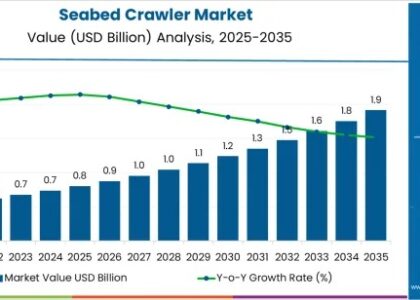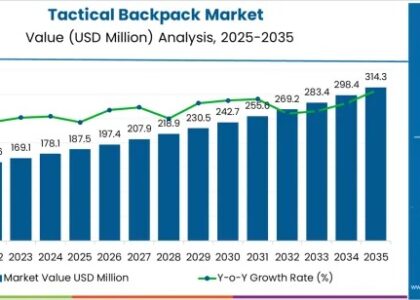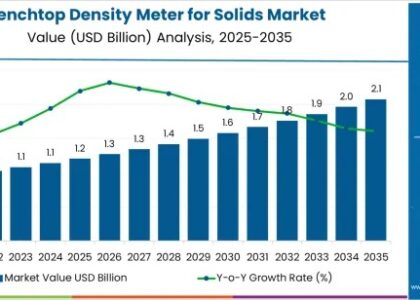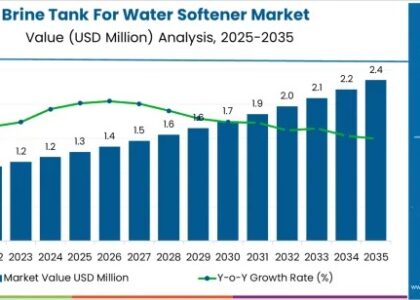
The hardware security module market is projected to grow significantly, rising from USD 2.0 billion in 2025 to USD 9.4 billion by 2035, reflecting a robust compound annual growth rate (CAGR) of 16.7% over the forecast period. This sharp rise is attributed to the escalating intensity and sophistication of cyber threats, the global increase in digital transactions, and the growing adoption of cloud-based security services. As enterprises and governments accelerate their digital transformation strategies, the demand for secure encryption and key management infrastructure has become more critical than ever. HSMs play an essential role in this environment by providing dedicated cryptographic processing and secure key storage, ensuring compliance with industry regulations and protecting sensitive information from breaches.
Geographically, North America continues to lead the market due to its early investments in advanced cybersecurity frameworks and increasing adoption of HSMs across finance, government, and healthcare sectors. Europe is following closely, bolstered by strict regulatory frameworks such as GDPR and eIDAS, which drive the adoption of hardware-backed encryption solutions. Meanwhile, Asia Pacific is emerging as a high-growth region due to its rapid digital transformation, growing fintech presence, and expanding e-governance initiatives. Countries such as China, India, Japan, and South Korea are witnessing increased demand for secure payment infrastructure and identity protection technologies, making them promising markets for HSM vendors over the next decade.
Get Ahead with Our Report: Request Your Sample Now!
https://www.futuremarketinsights.com/report-sample#5245502d47422d39323735
Key Takeaways
The hardware security module market is on a steep growth trajectory, set to increase from USD 2.0 billion in 2025 to USD 9.4 billion by 2035, at a CAGR of 16.7%. The rise in digital payments, cloud migrations, and adoption of IoT devices is heightening the demand for robust, hardware-based cryptographic security. Industries such as banking and financial services, telecom, government, and healthcare are leading adopters, as they manage highly sensitive data and are under pressure to comply with stringent regulatory requirements. HSMs are becoming central to enterprise security architectures, especially for secure key lifecycle management, digital signing, certificate management, and tokenization applications.
Emerging Trends in the Global Market
One of the most prominent trends shaping the HSM market is the rising integration of cloud-based HSMs with public key infrastructure (PKI) services. With the shift to hybrid and multi-cloud environments, enterprises are seeking scalable and compliant HSM solutions that integrate seamlessly across cloud platforms. Cloud HSMs are being offered as a service by major providers, allowing businesses to access enterprise-grade cryptographic capabilities without investing in physical infrastructure.
The convergence of HSM technology with emerging technologies such as blockchain, 5G, and confidential computing is also fueling innovation. For example, HSMs are increasingly used to secure blockchain private keys and smart contract signing processes. In the context of 5G networks, HSMs enable secure authentication between edge devices and central systems, providing a hardware root of trust. Furthermore, the application of artificial intelligence and machine learning in threat detection is driving interest in combining HSMs with advanced analytics to create proactive and adaptive security frameworks.
Another emerging trend is the adoption of post-quantum cryptography standards, with vendors beginning to develop quantum-resistant HSMs to protect data against future quantum computing threats. This is pushing the market toward the next phase of cryptographic resilience, making it a focal area for research and product development.
Significant Developments in the Global Sector: Trends and Opportunities in the Market
The HSM market is undergoing rapid transformation with developments focused on usability, integration, and performance. Organizations are demanding HSMs that support faster key generation, flexible APIs, and integration with broader cybersecurity ecosystems, including identity access management (IAM), security information and event management (SIEM), and zero-trust architecture platforms. This has led to the emergence of HSMs with containerized deployment models and software-defined control capabilities.
One key area of opportunity is the expansion of digital identity ecosystems in both government and private sectors. HSMs are playing a pivotal role in securing digital ID issuance, biometric authentication, and citizen records. As national digital identity programs expand in countries such as India (Aadhaar), Estonia, and Singapore, the integration of HSMs for tamper-proof credentialing is expected to become standard practice.
The transition of enterprises from on-premise to hybrid infrastructures is opening new avenues for HSM vendors to offer subscription-based models, such as HSM-as-a-Service (HSMaaS), tailored to the needs of small and medium-sized enterprises (SMEs) that require enterprise-grade security at lower upfront costs. These offerings are increasing the accessibility of hardware-level security for a broader spectrum of businesses.
Recent Developments in the Market
Recent market activity highlights strategic partnerships, mergers, and product innovations aimed at strengthening HSM capabilities and expanding market reach. Leading vendors have launched next-generation HSMs that feature enhanced performance, energy efficiency, and multi-cloud compatibility. Integration with DevOps pipelines and support for container environments such as Docker and Kubernetes is becoming more common, aligning HSMs with modern development workflows.
Partnerships between cybersecurity firms and cloud providers are also becoming prevalent. These collaborations aim to deliver end-to-end encryption solutions with centralized key control, meeting compliance needs in sectors like healthcare and banking. Moreover, regulatory bodies across regions are encouraging HSM adoption by mandating hardware-based cryptographic measures for sensitive operations such as digital payments, e-signatures, and data sovereignty compliance.
Detailed Market Study: Full Report and Analysis
https://www.futuremarketinsights.com/reports/hardware-security-module-market
Competition Outlook
The hardware security module market is marked by intense competition among established players and emerging startups. Key industry leaders include Thales Group, IBM Corporation, Hewlett Packard Enterprise, Utimaco GmbH, Futurex, Atos SE, Securosys SA, Yubico, STMicroelectronics, and Entrust Corporation. These players are investing heavily in product innovation, cloud integration, and global distribution networks to cater to the increasing demand for scalable, compliant, and high-performance HSM solutions.
Competition is further intensifying with the entry of niche vendors offering specialized HSM appliances for blockchain, fintech, and automotive applications. As HSMs become more critical for enterprise security infrastructure, partnerships with system integrators and cloud service providers are expected to shape the competitive dynamics over the next decade.
Key Segmentations
The HSM market can be segmented by type, deployment model, application, end-user industry, and region. By type, the market includes LAN-based, USB-based, PCI-based, and cloud-based HSMs. Deployment models span on-premise and cloud-based installations. Applications include payment processing, authentication, code signing, database encryption, and PKI. Major end-user industries are BFSI, government, IT and telecom, healthcare, and energy and utilities. Geographically, North America holds the largest share due to strong cybersecurity investments, while Asia Pacific is expected to grow fastest, driven by its rapid digital economy expansion and increasing data privacy regulations.
About Future Market Insights (FMI)
Future Market Insights, Inc. (ESOMAR certified, recipient of the Stevie Award, and a member of the Greater New York Chamber of Commerce) offers profound insights into the driving factors that are boosting demand in the market. FMI stands as the leading global provider of market intelligence, advisory services, consulting, and events for the Packaging, Food and Beverage, Consumer Technology, Healthcare, Industrial, and Chemicals markets. With a vast team of 400 analysts worldwide, FMI provides global, regional, and local expertise on diverse domains and industry trends across more than 110 countries.
Contact Us:
Future Market Insights Inc.
Christiana Corporate, 200 Continental Drive,
Suite 401, Newark, Delaware – 19713, USA
T: +1-845-579-5705
For Sales Enquiries: sales@futuremarketinsights.com
Website: https://www.futuremarketinsights.com
LinkedIn| Twitter| Blogs | YouTube





